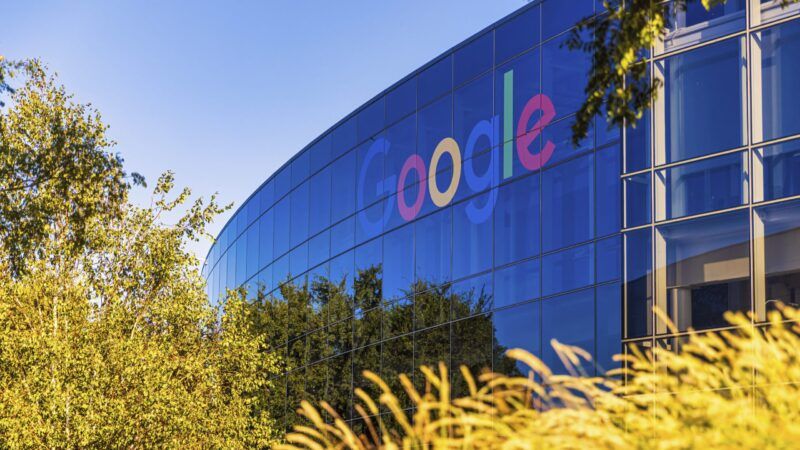Antitrust Remedies Against Google Would Punish Consumers, Not Protect Them
Forcing the sale of Chrome or banning default agreements wouldn’t foster competition—it would hobble innovation, hurt smaller players, and leave users with worse products.

In 2024, U.S. District Judge Amit Mehta found that Google's agreements with Apple and other companies to be the default search engine on various smartphones and tablets violated antitrust laws. This case is now in its remedies phase, meaning a court is considering various proposals from both sides on necessary changes to respond to the violations.
But if the government gets its way, consumers will be the ones to lose out, and the government will be far more involved in dictating the marketplace. To put it bluntly, the proposed punishment does not fit the crime.
For one, predicting when and how true disruption will occur is rarely possible. Just in the months since the trial, AI and AI-related search products are being built into products such as the next generation of iPhones, raising questions about Mehta's declaration that they were not true competitors in the same market. Looking for the "next Google" may miss the true changes in how consumers experience technology, and innovation is often our best competition policy.
While the decision of this case may have led to headlines saying that Google was declared a monopoly, the decision around antitrust is not about the company's status as a whole but about one particular type of business agreement the company entered into. The court did not declare Google an overall monopoly. Nonetheless, the dramatic proposals from the Department of Justice include a potential breakup of Google, forcing it to sell Chrome. This is roughly like the government proposing that if a store violates a law with an agreement with a vendor over T-shirts, it must sell off its subsidiary that sells flip-flops as a punishment. One might not like the size of the company or its actions, but the two elements are unrelated. At best, the punishment seems illogical, and at worst, unjust.
Forcing Google to sell off Chrome would potentially shrink the market for one element of browser engines and make it more difficult for smaller players to compete while also further strengthening existing giants. As Mozilla, a smaller browser competitor, explained in opposition to the remedies, "By jeopardizing the revenue streams of critical browser competitors, these remedies risk unintentionally strengthening the positions of a handful of powerful players, and doing so without delivering meaningful improvements to search competition."
Such markets are complicated ecosystems, and moving the lever on unrelated elements would not only fail to respond to the alleged violations but also make it more difficult for smaller players to compete.
Antitrust law is supposed to focus on consumer welfare, but now it seems like the remedies might be punishment for a company being popular with consumers. In cases where defaults were changed, such as Mozilla switching to Yahoo or the choice screens required by European law, consumers largely found the alternatives inferior. They continued to choose Google because they preferred its product.
Forcing companies such as Apple to give their customers an inferior product because of Google's case would disadvantage the public perception of those companies and thus hurt their businesses. The remedies at hand mean that consumers will face more friction or be stuck with inferior products because antitrust law favors competitors' welfare over that of consumers.
Innovation and technology move quickly, while antitrust cases and remedies move slowly and very often are short-sighted and fail to fit the alleged violation. The proposed remedies wouldn't just punish Google—they would punish consumers.
Editor's Note: As of February 29, 2024, commenting privileges on reason.com posts are limited to Reason Plus subscribers. Past commenters are grandfathered in for a temporary period. Subscribe here to preserve your ability to comment. Your Reason Plus subscription also gives you an ad-free version of reason.com, along with full access to the digital edition and archives of Reason magazine. We request that comments be civil and on-topic. We do not moderate or assume any responsibility for comments, which are owned by the readers who post them. Comments do not represent the views of reason.com or Reason Foundation. We reserve the right to delete any comment and ban commenters for any reason at any time. Comments may only be edited within 5 minutes of posting. Report abuses.
Please to post comments


Internet Explorer is dead. This reminds me of that. If Google isn't allowed to exploit customer private information using proprietary technology then Chrome will be just as dead in 10 years. Might be a good thing.
Google has shifted to a 'make search shitty in order to serve more ads' model and pays other companies huge amounts of money in order to keep their search being used by them - but sure, breaking up Google will stifle the innovation that Google isn't already stifling.
IF I Google to find out if you are right, it will give me hundreds of lying links. This surprises you ?
Firefox FTW.
Does anyone still use Chrome?